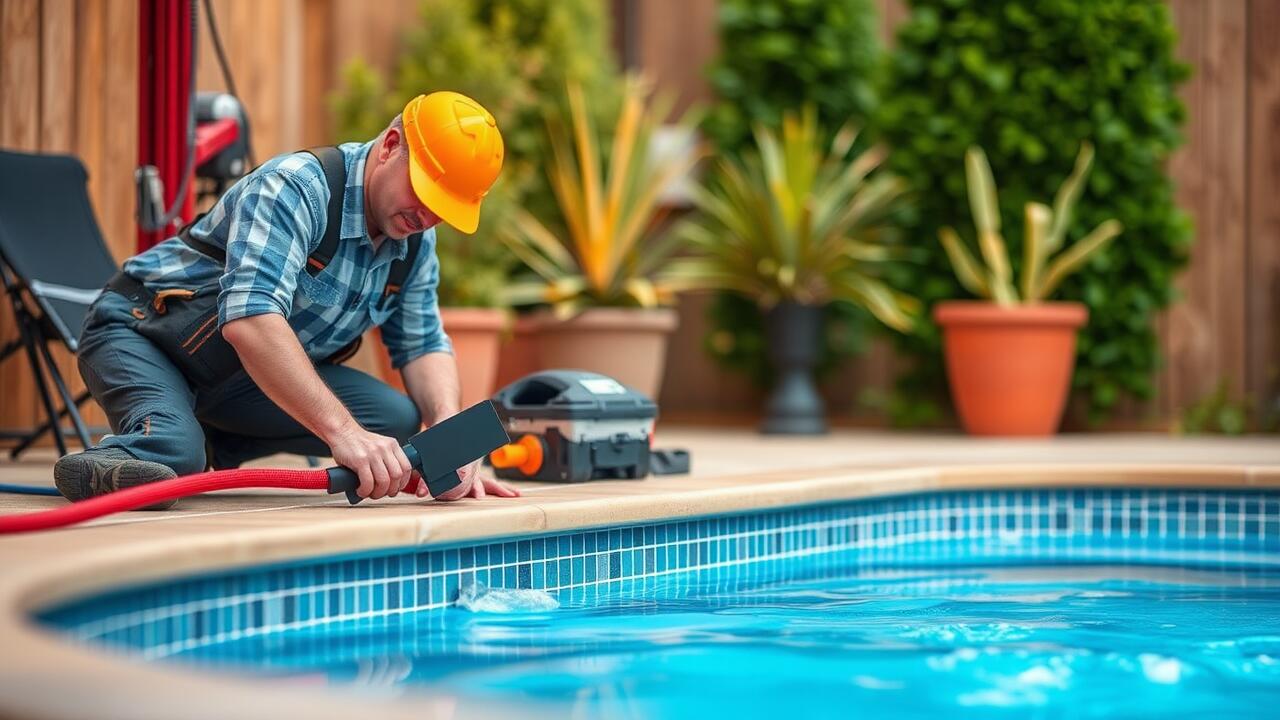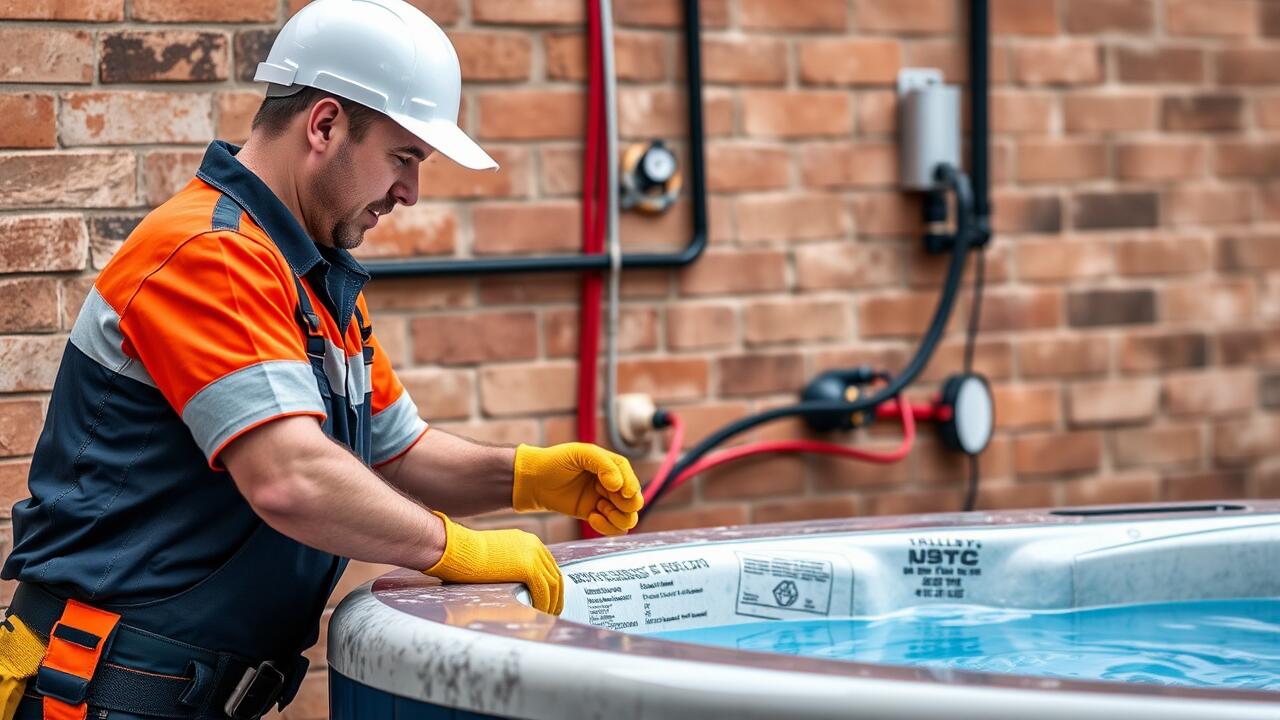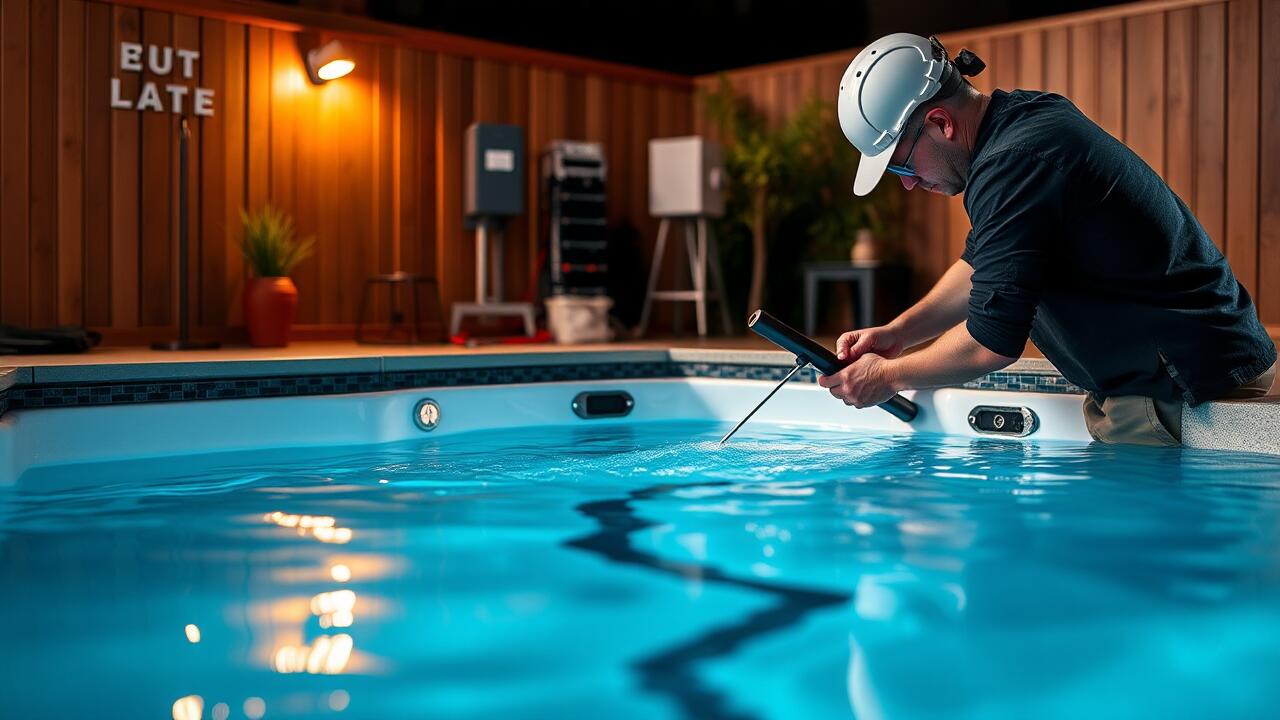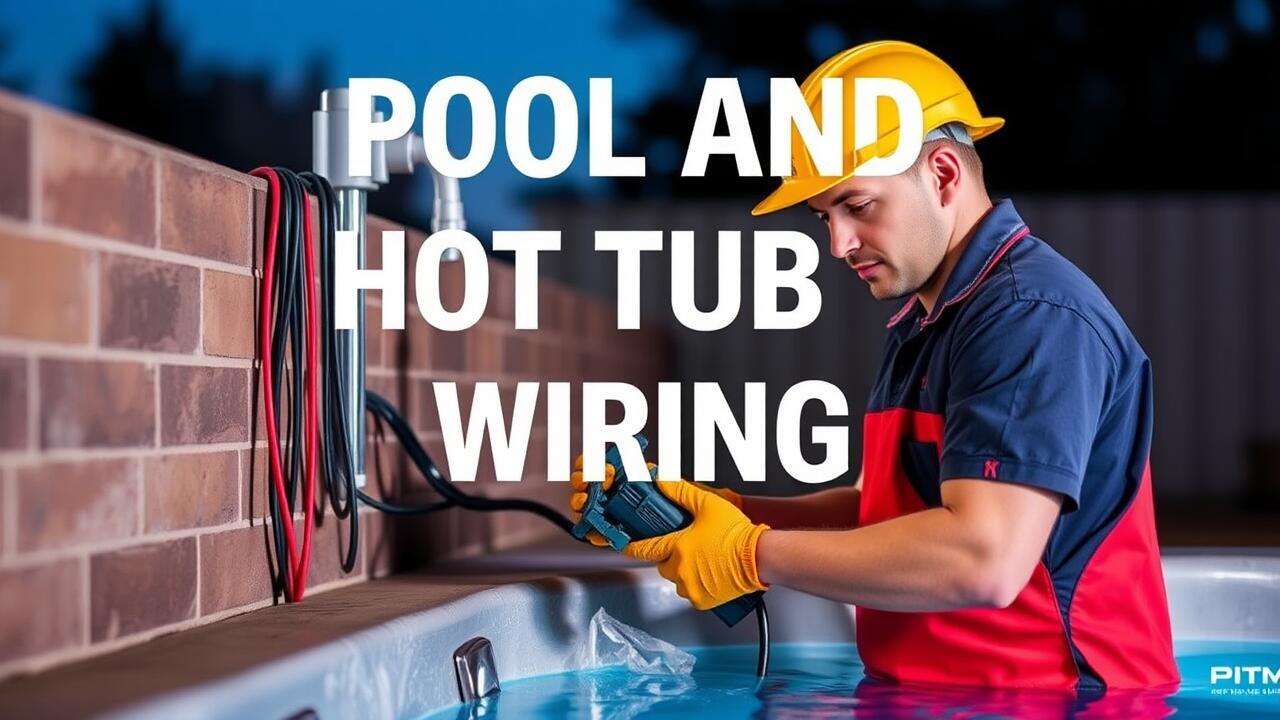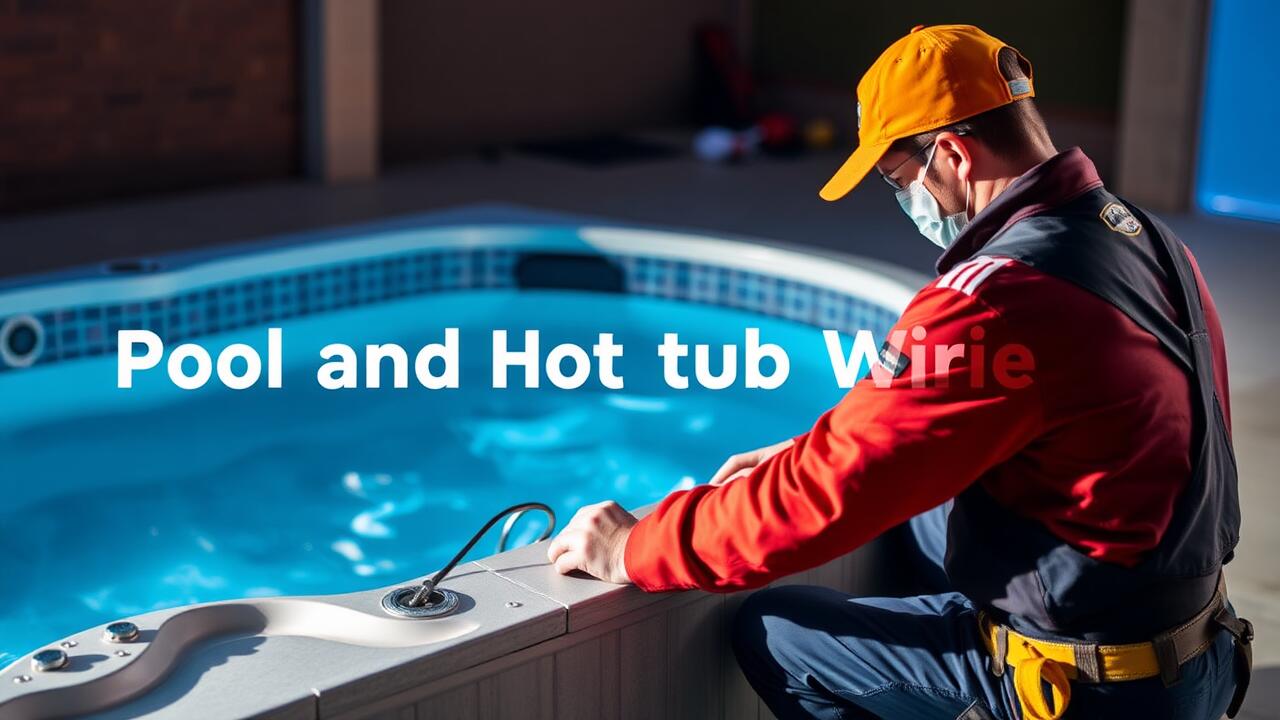
Best Practices for Installation Near Water
When installing electrical equipment near water sources, prioritizing safety is essential. Equipment should be elevated above the anticipated flood line to minimize the risk of water exposure. Additionally, using weatherproof enclosures and tight seals can help protect connections from moisture. For areas specifically like pools and hot tubs, proper wiring practices are crucial. Pool and Hot Tub Wiring in Montrose, Houston, must adhere to local codes and standards to ensure a safe environment for users.
Choosing the right materials can significantly impact the longevity and safety of installations near water. Non-corrosive materials and those rated for wet or damp locations should be favored. It's also important to consider the location of receptacles and switches, ensuring they are placed at a safe distance from the water source. Labels and warnings should be clearly visible to inform users of potential hazards associated with electrical equipment in aquatic settings.
Elevation and Positioning of Equipment
When installing electrical equipment near water sources, elevation and positioning are critical factors to consider. Equipment should be placed at an appropriate height to reduce the risk of water exposure. Using elevated platforms or weather-resistant enclosures helps protect wiring and components from splashes, flooding, or accidental immersion. Properly positioned equipment ensures that it remains accessible for maintenance while minimizing hazards associated with water contact.
In areas like Houston, where pools and hot tubs are prevalent, adhering to local codes is vital. Pool and Hot Tub Wiring in Greater Heights, Houston, reflects specific regulations that dictate the minimum height and installation methods for electrical systems. Following these standards not only promotes safety but also aligns with best practices outlined by safety organizations. This approach allows for the effective use of electrical devices while safeguarding both users and equipment from potential water-related hazards.
Regular Maintenance and Inspections
Regular maintenance and inspections are critical for ensuring the safety of electrical equipment in environments exposed to water. Consistent checks help identify wear, corrosion, or any other damage that may compromise the integrity of wiring and connections. These inspections should involve testing ground fault circuit interrupters (GFCIs) and verifying that all protective barriers are intact. The frequency of maintenance activities should align with industry standards and local regulations, particularly in areas like Pool and Hot Tub Wiring in Westchase, Houston, where humidity and water exposure increase risks.
Routine assessments should also cover the overall condition of electrical panels and circuitry, focusing on potential hazards. Technicians should monitor for any signs of moisture intrusion and confirm that seals and enclosures are secure. Keeping detailed records of maintenance activities and inspections aids in identifying patterns that might indicate recurring issues. Regularly updating safety protocols in compliance with current codes can further enhance the safety of installations near water.
Ensuring Long-Term Safety
Regular inspections and maintenance are crucial in ensuring the long-term safety of electrical equipment near water sources. Equipment should be routinely checked for signs of wear, corrosion, or damage, particularly in environments with high humidity or chlorinated water. By establishing a comprehensive schedule for these inspections, operators can identify potential hazards before they lead to serious incidents. It is also essential to adhere to manufacturer recommendations for maintaining electrical devices, considering factors such as environmental impact and expected lifespan.
For areas such as Pool and Hot Tub Wiring in Greater Heights, Houston, specialized knowledge of the local codes and safety measures is necessary. Compliance with all regulations protects users and enhances the longevity of the equipment. Ensuring that all staff members are well-informed about the specific challenges of working with electrical systems in wet environments can mitigate risks. Investing in quality components and employing skilled professionals for installation and upkeep further contribute to a safer operation over time.
Training for Personnel Handling Electrical Equipment
Proper training for personnel handling electrical equipment is critical, especially in environments where water is present. Employees must understand the unique challenges associated with working near water and how to mitigate risks effectively. Emphasizing the importance of safety procedures and regular drills can help reinforce their training. Familiarity with local codes and regulations is equally essential to ensure compliance and safety.
In areas such as Pool and Hot Tub Wiring in Midtown, Houston, specific training programs focusing on local electrical codes are indispensable. Workers should be educated on identifying potential hazards and implementing safety measures tailored to their environment. Regular refresher courses can help maintain high safety standards and keep personnel updated on any changes in regulations or techniques within the industry.
Importance of Safety Training
Training personnel in the safe handling of electrical equipment is critical, especially in environments where water is present. Knowledge of specific safety protocols can significantly reduce the risk of accidents. Workers must understand the hazards associated with water and electricity. Familiarity with local codes and standards related to electrical installations, such as those for Pool and Hot Tub Wiring in Midtown, Houston, is essential for compliance and safety.
Conducting regular safety training sessions reinforces these important concepts. Personnel should be updated on the latest safety practices and procedures to ensure that they remain vigilant. Engaging in practical demonstrations can further solidify understanding. An informed workforce is crucial in preventing electrical mishaps near water, protecting both personnel and the public.
FAQS
Why is it important to follow safety standards for electrical equipment near water?
Following safety standards is crucial to prevent electrical accidents, injuries, and fatalities. Water is a conductive material, and improper installation or maintenance of electrical equipment can lead to electric shock or electrocution.
What are some best practices for installing electrical equipment near water?
Best practices include elevating and properly positioning equipment to avoid exposure to water, using weather-resistant materials, and ensuring that all installations comply with local safety codes and regulations.
How often should electrical equipment near water be inspected?
Regular inspections should be conducted at least once a year, or more frequently if the equipment is subject to harsh conditions or heavy use. Inspections help identify potential hazards and ensure ongoing compliance with safety standards.
What should be included in personnel training for handling electrical equipment near water?
Training should cover topics such as understanding electrical hazards, proper installation and maintenance practices, emergency response procedures, and the importance of using personal protective equipment (PPE).
What are the consequences of neglecting safety standards for electrical equipment near water?
Neglecting safety standards can lead to serious accidents, including electrical shock and fires, as well as legal repercussions, fines, and damage to property. It also puts workers and the public at risk.
